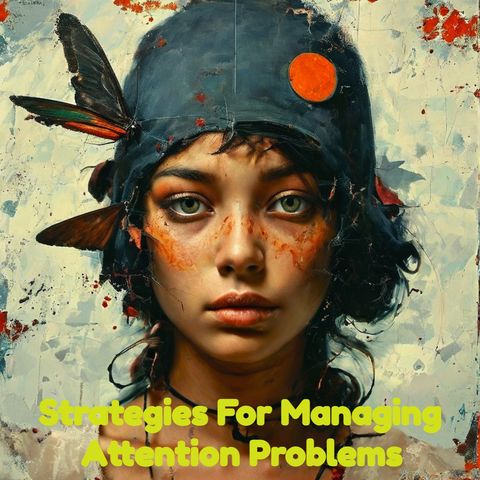Strategies For Managing Attention Problems

Download and listen anywhere
Download your favorite episodes and enjoy them, wherever you are! Sign up or log in now to access offline listening.
Strategies For Managing Attention Problems
This is an automatically generated transcript. Please note that complete accuracy is not guaranteed.
Description
Practical Tips for Managing Attention Problems in Adults Attention problems aren’t limited to children; many adults also struggle with focus and concentration in various aspects of their lives. Whether at...
show moreAttention problems aren’t limited to children; many adults also struggle with focus and concentration in various aspects of their lives.
Whether at work, in personal relationships, or during daily tasks, attention challenges can impact productivity and overall well-being.
Fortunately, there are practical strategies adults can employ to better manage attention difficulties and enhance their quality of life.Recognizing Adult Attention Issues: Adults with attention problems may exhibit behaviors such as:
- Difficulty staying organized.
- Procrastination.
- Inability to complete tasks.
- Forgetfulness.
- Impulsivity.
- Restlessness.
- Stress and Anxiety: High-stress levels can impair focus and cognitive function.
- Sleep Disorders: Insufficient sleep or sleep disorders can disrupt attention and concentration.
- Health Conditions: Conditions like depression, ADHD, or thyroid disorders can affect attention.
- Lifestyle Factors: Poor diet, lack of exercise, or excessive screen time can impact cognitive function.
- Time Blocking: Allocate specific time slots for tasks and minimize distractions during these periods.
- Prioritization: Use to-do lists and prioritize tasks based on importance and urgency.
- Break Tasks Down: Divide large tasks into smaller, manageable steps to avoid feeling overwhelmed.
- Mindfulness and Meditation: Practice mindfulness techniques to improve focus and reduce mental clutter.
- Limit Multitasking: Focus on one task at a time to enhance productivity and reduce errors.
Noise-canceling headphones, organizing tools, and ergonomic furniture can promote a more focused environment.
Seeking Professional Help: For persistent attention problems impacting daily life, consulting with a healthcare provider or psychologist is advisable.
They can assess underlying causes and recommend appropriate interventions, such as therapy, medication, or lifestyle modifications.
Self-Care and Lifestyle Changes: Prioritize self-care activities like regular exercise, sufficient sleep, and balanced nutrition. Avoid excessive caffeine or alcohol consumption, as they can exacerbate attention difficulties.
Community Support and Resources: Engage in support groups or online forums where individuals with similar challenges share experiences and coping strategies. Learning from others’ journeys can provide valuable insights and encouragement.
By implementing these practical tips and seeking appropriate support, adults can effectively manage attention problems and improve their overall cognitive function and quality of life.
Information
| Author | Find Out How! |
| Organization | Find Out How! |
| Website | - |
| Tags |
Copyright 2024 - Spreaker Inc. an iHeartMedia Company
